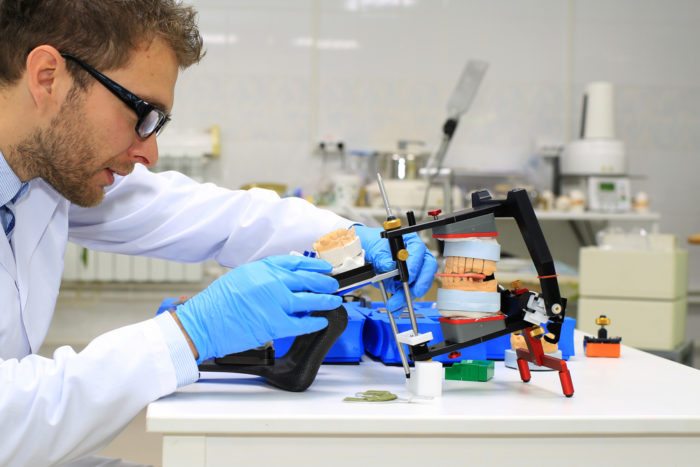Are you considering a career in the field of dentistry but aren’t quite sure where to start?
If so, you’re in the right place.
Dental assistant training is a fundamental step in the journey to becoming a skilled and valued member of a dental healthcare team.
In this article, we’ll take a closer look at what dental assistant training entails, why it’s essential, and how it can open doors to a rewarding profession in the dental industry.
Let’s dive in and explore!
See: What is a Dental Assistant
What is a Dental Assistant?
First, let’s talk about what exactly is a dental assistant.
A dental assistant is a valuable member of the dental team who supports dentists in various tasks to ensure smooth and efficient dental care.
Their responsibilities can include preparing patients for treatments, assisting during dental procedures, taking X-rays (depending on certification and state regulations), managing instruments, maintaining patient records, and providing essential support in administrative tasks.
3 Critical Elements to Become a Dental Assistant
Now that you know how important dental assistant training is, you might be wondering about the essential elements you need to focus on to become a successful one.
Let us help you with that.
Here are 3 critical elements you need to fulfill to become a dental assistant:
1. Formal Dental Assistant Training:
The foundation of a successful career as a dental assistant is proper education and training.
Formal dental assistant training programs are typically offered by community colleges, technical schools, or vocational institutes. These programs provide aspiring dental assistants with a comprehensive understanding of dental procedures, terminology, and the skills required to excel in this role.
During your formal training, you’ll cover a wide range of subjects, including dental anatomy, radiography, infection control, and patient care. These courses are designed to ensure that you have a solid grasp of the core principles of dental assisting.
2. NELDA Certification:
National Entry Level Dental Assistant (NELDA) certification is crucial for those looking to establish their credentials and stand out in the competitive dental assistant job market.
To become NELDA-certified, you must pass an examination administered by the Dental Assisting National Board (DANB). This certification demonstrates your proficiency in the field, which employers highly value.
The NELDA certification exam typically comprises three components:
- Radiation Health and Safety (RHS),
- Infection Control (ICE), and
- Anatomy, Morphology, and Physiology (AMP).
Successful completion of these exams validates your knowledge in crucial areas such as X-ray safety, infection control protocols, and understanding dental anatomy, which are all vital aspects of dental assisting.
3. Hands-On Experience:
While formal training and certification are essential, hands-on experience is the glue that holds it all together. Dental assistants work in a dynamic environment, and practical experience is invaluable for mastering the day-to-day responsibilities of the role.
During your training and possibly through internships or externships arranged by your educational institution, you’ll have the opportunity to apply your knowledge in real dental settings. This practical experience helps you become adept at chairside assisting, taking and developing X-rays, preparing patients for procedures, sterilizing instruments, and managing patient records.
Read: Dental Assistant Online Programs
Types of Dental Assistant Training
There are three main methods or ways by which you can complete your dental assistant training, such as:
Associate Degree
An associate degree program covers comprehensive education, covering a wide range of topics, including dental procedures, patient care, and dental office management.
However, this comprehensive training comes with a longer duration, usually spanning two years, ensuring a thorough understanding of the subject matter. Also, it incorporates clinical training, providing hands-on experience in a dental environment to apply your acquired knowledge effectively.
Pros:
Well-Rounded Education: You gain a deep understanding of dental assisting, which can lead to better job opportunities.
Increased Earning Potential: With an associate degree, you might earn a higher salary.
Advanced Career Path: It provides a stepping stone to more advanced positions in the dental field.
Cons:
- Time-Consuming: Takes longer to complete compared to certificate programs.
- Higher Cost: Tuition and expenses can be a burden for some students.
On-Campus Certificate Programs
Certificate programs provide concentrated training, focusing on the fundamental aspects of dental assisting. They offer a shorter duration for completion as compared to associate degree programs, typically spanning 9 months to a year.
These programs also emphasize hands-on experience, often incorporating clinical training to refine practical skills.
In addition to their time efficiency, they tend to be more cost-effective when compared to associate degree programs.
Pros:
- Quick Entry: You can start your career sooner due to the shorter duration.
- Affordability: Certificate programs are often more budget-friendly.
- Practical Skills: Hands-on training prepares you for the real job.
Cons:
- Limited Scope: Education might not be as in-depth compared to associate degree programs.
- Less Advanced Opportunities: This may not qualify you for some advanced roles within the dental field.
Online Dental Assistant Training
Online dental assistant training brings several advantages to the table. Firstly, it offers unmatched convenience, enabling you to acquire knowledge from the comfort of your own home, eliminating the hassle of daily commuting.
Secondly, it provides remarkable flexibility, allowing you to set your own learning pace, which is perfect for individuals with busy schedules or various commitments. Also, online programs are frequently more cost-efficient than traditional on-campus options, making education more accessible.
With many reputable institutions offering online dental assistant training, students gain access to quality education from recognized sources.
Lastly, online courses incorporate interactive features such as videos and quizzes, which makes the learning experience engaging and effective.
Pros:
- Convenience: You can learn from anywhere, saving time and money on commuting.
- Flexibility: Study when it suits you, making it easier to balance with other responsibilities.
- Affordability: Often more cost-effective than traditional programs.
- Accessible: Online programs open doors for individuals in remote areas.
- Interactive Learning: Modern online courses engage students effectively.
5 Golden Rules for Dental Assistant Training
We know that looking for and choosing the right dental assistant training program can be intimidating at first, but we’re here to help you through the process.
We have laid out the five golden rules you need to look for while selecting a dental assistant program, that aligns with your needs, aspirations, and budget, setting you on a path to a successful career in dental assisting.
1. 100% Online Learning:
Look for a program that offers comprehensive dental assistant training entirely online. This accessibility allows you to study from anywhere with an internet connection, giving you the freedom to choose your learning environment.
2. Self-Paced Curriculum:
Opt for a self-paced learning model that lets you progress through the material at your own speed. This flexibility is especially beneficial if you have a busy schedule or other commitments, ensuring you can tailor your learning experience to your needs.
3. Affordability:
Seek an affordable online training program that fits your budget. Online courses often come at a lower cost than traditional on-campus options, making quality education more accessible to a wider range of students.
4. NELDA Preparation:
Ensure that the program is designed to prepare you for the National Entry Level Dental Assistant (NELDA) certification exam. This demonstrates that the training covers the knowledge and skills required for a dental assistant’s role and can enhance your job prospects.
5. Hands-on Clinical Experience Support:
Look for a program that assists in arranging hands-on clinical experience. While online learning covers the theoretical aspect, practical training is crucial. Programs that help you secure hands-on experience in a dental office or clinic offer a more comprehensive education.
Read more: Dental Assistant Salary
Conclusion
To sum it up, there are different ways to train for a dental assistant career. You can go for a comprehensive associate degree or a quicker, on-campus certificate program. Alternatively, online training offers convenience and affordability.
Remember, hands-on experience and NELDA certification are crucial. The key is to select the option that best fits your needs and aspirations.
Related Resources:
- Dental Administrative Assistant
- What do you need to be a dental assistant?
- Dental Assistant Qualifications
- Future of Dental Assisting
- Entry-Level Dental Assistant
- Orthodontic Dental Assistant
- Lead Dental Assistant
- Dental Assistant Apprenticeship
- Dental Assistant License Guide
- How to Become a Dental Assistant
- Dental Assistant School
Related Articles
-
How to Be Successful in College in 2022 – 7 Simple Tips to Succeed
-
How Do Scholarships Work? Read This First…Truth is Shocking
-
7 Best College Majors 2024: What Should I Major In?
-
How to Choose a College – 10 Things You Must Consider in 2024
-
Why Go to College? Top 13 Benefits for Adult Students in 2022
-
Top 5 Best Alternatives to Community College for 2024







